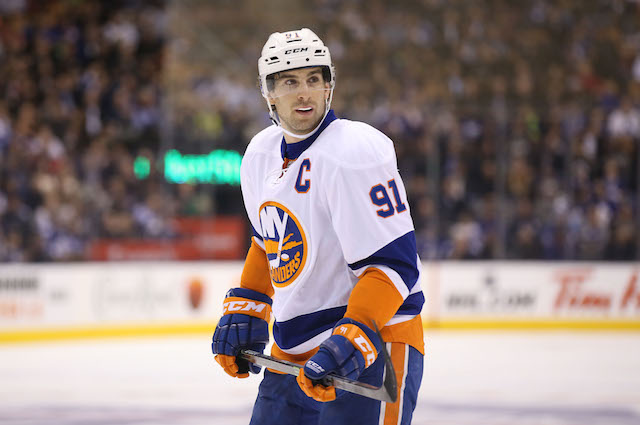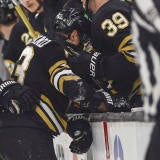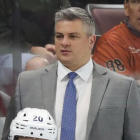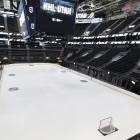The New York Islanders' final season on Long Island before their move to Brooklyn was, for the most part, a success.
John Tavares was one of the most dynamic offensive players in the league and nearly won the league scoring title as he helped drive one of the NHL's best offensive teams.
When you combine that offensive core with a handful of significant offseason moves, including the trades for starting goaltender Jaroslav Halak and defenseman Nick Leddy and Johnny Boychuk, the team was able to return to the postseason and started to establish itself as a serious contender in the Eastern Conference, finishing with the franchise's highest point total since 1984.
Even though the season ended in disappointment thanks to a 2-1 Game 7 loss at the hands of the Washington Capitals in the first round, it was still a big step forward for the franchise. Now, with one of the NHL's best players and a strong supporting cast around him the Islanders seem poised to win their first playoff series since 1993 and perhaps even challenge for the Eastern Conference crown ... just as long as they find a way to cut down the number of goals they allow.

2015-16 at a glance
New additions: Taylor Beck, Steve Bernier, Marek Zidlicky, Thomas Greiss
Key losses: Michael Grabner, Lubomir Visnovsky
Top returning scorers: John Tavares (82 GP, 38-48--86), Kyle Okposo (60 GP, 18-33--51), Ryan Strome (81 GP 17-33--50)
Total salary against cap: $65,424,642
Remaining cap space: $5,975,358
Biggest question heading into season: Can they prevent enough goals to seriously compete for a Stanley Cup?
In an era where every NHL game seems to end with the same 2-1 final score, the Islanders have were a pleasant change of pace with their back-and-forth, high-event style of play in 2014-15. Their games last season were in the top-three in both total goals scored and total shot attempts. In other words: They were rarely boring, and there was always something happening.
And with an offense that has a potential scoring champion (Tavares) surrounded by a deep, talented group of forwards they should continue to be one of the highest scoring teams in the league this season.
That's the good news.
The bad news is the Islanders also gave up just as much coming back the other way in terms of goals and were near the bottom of the NHL in two significant categories when it comes to winning championships: Goals against (22nd) and the penalty kill (26th).
No playoff team in 2014-15 finished lower than them in either category.
The problem with this for the Islanders is Stanley Cup winning teams tend to finish near the top of the league in these categories and are two areas that winning teams all tend to have in common. Just looking at the past 10 champions they avearged a top-five finish in goals against and a top-seven finish on the penalty kill. Only two of the past 10 winners finished lower than seventh in goals against, and nobody was worse than 20th (Carolina was 20th when it won in 2005-06).
So how can they fix those issues?
It might not be as difficult as it seems, and it might come down to some improved play from their backup goaltenders.
Season outlook: The Islanders have set themselves up to be a serious threat in the Eastern Conference with a great offense, a really strong top-pairing on defense with Johnny Boychuk and Nick Leddy and a pretty solid starting goaltender. And for all of the aforementioned struggles the Islanders had last season in terms of preventing goals, they still did some decent things defensively when it came to shot prevention, allowing only 28.3 shots per game, the seventh lowest total in the league. With Jaroslav Halk in net that should have been good enough to be, at the very least, a better than average defensive team.
And when Halak was in net, they were. The problem came when Halak wasn't in net.
That is when their backups managed only a pitiful .887 save percentage and played about as poorly as a collection of NHL goaltenders can play. They weren't just bad, they were awful, and it pretty much sabotaged their team defensive numbers.
If their backup goaltenders had simply played at a league average level -- or even a slightly below average level -- instead of the league-worst level they did play it probably would have shaved 15-20 goals off of the Islanders' season total. That would have moved them from 22nd in the league in goals against all the way to the top-11.
The Islanders didn't make many significant changes this offseason -- at least nothing on the same level as last year's moves for Mikhail Grabvoski, Nikolai Kulemin, Nick Leddy and Johnny Boychuk -- but they did at least try to address the backup goalie spot by bringing in Thomas Greiss.





















